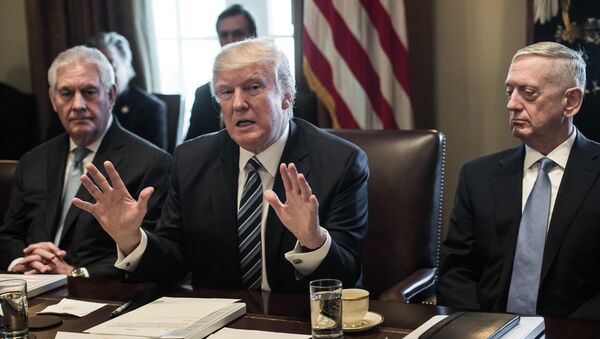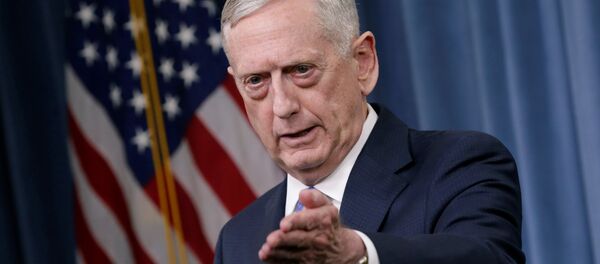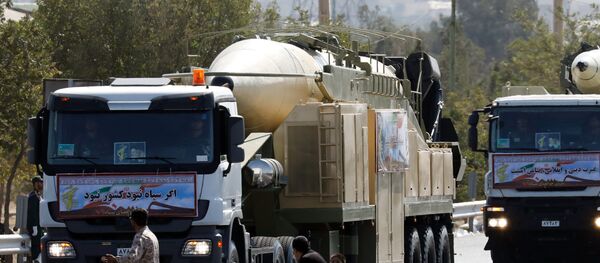In testimony before the Senate Armed Services Committee on Tuesday, Mattis said that the president "should consider staying in" the 2015 Joint Comprehensive Plan of Action, better known as the Iran nuclear deal. On Wednesday, Secretary of State Rex Tillerson said he would give the president "a couple of options" on how to move forward on the issue, following reports that he was working with Congress to avoid starting a new international crisis ahead of the agreement's looming October 15 certification deadline.
Speaking to Radio Sputnik about the apparent confusion in Washington, Dr. Anoush Ehteshami, a professor of international relations at the School of Government & International Affairs at Durham University, said that US officials' top concern seems to be to avoid starting yet another crisis in the Middle East while they're focused on the Korean peninsula.
"Both the State Department and the Pentagon want to intervene at this stage to ensure their voices are heard, and that Congress does not go out on a limb looking at rather parochial, rather narrow interpretations of things, and keep a much broader understanding of what's going on beyond America's borders in mind," Ehteshami explained.
"Obviously, the Secretary of State and the Defense Secretary are the two who truly understand what's going on internationally, and feel perhaps that in the absence of presidential leadership, they need to make sure that other voices are heard," he added.
At the same time, the fact that Iran continues to comply with the agreement means there isn't much international pressure Trump can bring to bear against Tehran. Both the International Atomic Energy Agency and US intelligence services have confirmed that there is no indication that Iran is in violation of its commitments.
"They could, I support, argue that Iran is violating the spirit of the deal, through its development of nuclear [capable] missiles, and therefore put very specific sanctions on key individuals and organizations. But they will not be able to break the deal, which has been signed off on by the UN, and has the backing of Russia, China, and the European Union countries. He simply cannot do it by itself," Ehteshami stressed.
In the meantime, Ehteshami noted, Russia, China, the EU and the rest of the international community would continue to happily develop trade, diplomatic, cultural and military ties with Iran, "because as far as they're concerned, the sanctions have now been lifted and totally suspended."
Whatever the US ends up doing, it cannot abrogate the Iran deal, since it's an international agreement, the expert stressed. "I don't get the impression that Iran has any interest in violating the deal, because the deal is in Iran's interest – in the interest of its economy, its diplomatic relations and political relations across the world."
Accordingly, if the US does pull out, the UN could step in, and provide Tehran with assurances that the rest of the international community will continue to support the agreement, and its clauses to help Iran in the development of international political, economic, trade and other links.
"In that situation, I guess it's America that will be isolated. But whether it can introduce secondary sanctions, that is on Russian, Chinese, European companies (or from anywhere else for that matter) for doing business with Iran is an entirely different matter," Ehteshami stressed. The academic believes that if the US did try to introduce secondary sanctions, companies, even those from countries that are US allies, would likely confront Washington over the matter.





